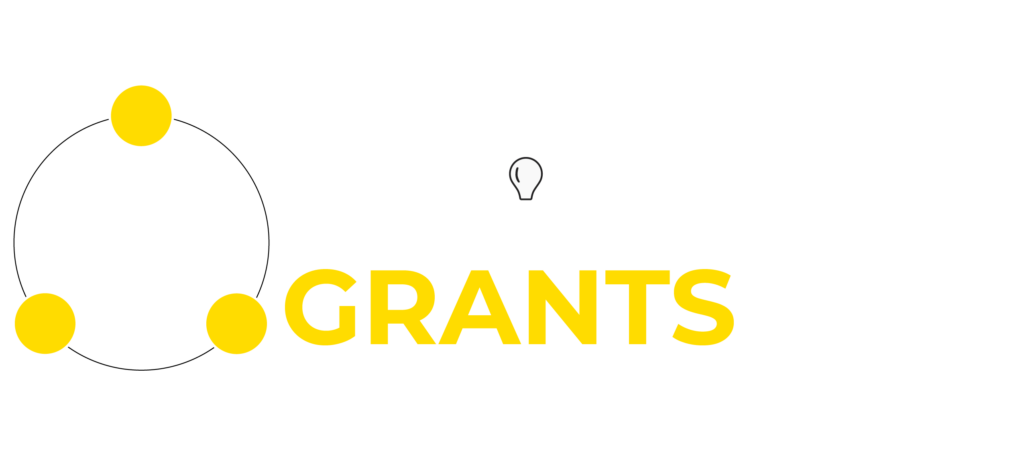Starting or growing a business often needs a lot of money. Two common ways to get funds are crowdfunding and grants. But how do you choose which is right for your business? Both can help you raise money, but they work in different ways. This article will help you understand the differences, benefits, and challenges of crowdfunding and grants, so you can make the best decision for your needs.
What is Crowdfunding?
Crowdfunding is a way to raise money from many people, usually online. You share your idea on a crowdfunding website, and people can give money to support it. In return, you might give them a reward, a part of your business, or simply the satisfaction of helping out.
Types of Crowdfunding
There are several types of crowdfunding:
- Reward-Based Crowdfunding: You give rewards, like products or services, for contributions.
- Equity Crowdfunding: People get a small share of your business for their investment.
- Donation-Based Crowdfunding: People give money without expecting anything back.
- Debt Crowdfunding: You borrow money from many people and promise to pay it back with interest.
Benefits of Crowdfunding
Crowdfunding offers several benefits:
- Access to Funds: Raise money without needing a bank loan.
- Market Testing: See if people are interested in your idea.
- Publicity: A successful campaign can bring attention to your business.
- Community: Build a group of supporters and future customers.
Challenges of Crowdfunding
Crowdfunding also has its challenges:
- Competition: Many projects are trying to get attention and money.
- Effort: Running a campaign takes a lot of time and energy.
- Fees: Platforms often charge a percentage of the money you raise.
- Delivery: Fulfilling promises to backers can be complicated.
Crowdfunding and Grants: What are Grants?
Grants are funds given by governments, companies, foundations, or non-profit organizations to support specific projects or businesses. Unlike loans, you don’t have to pay back grants. They are usually given based on the potential impact of your project and how well it matches the grantor’s goals.
Types of Grants
There are different types of grants:
- Government Grants: Provided by local, state, or federal governments.
- Corporate Grants: Given by companies to support projects that align with their interests.
- Foundation Grants: Offered by non-profit organizations to support causes they care about.
- Research Grants: Usually given for scientific or academic research projects.
Benefits of Grants
Grants have many benefits:
- No Repayment: You don’t have to pay back the money.
- Financial Support: Grants can provide significant funds.
- Credibility: Receiving a grant can boost your business’s reputation.
- Focus on Goals: Grants allow you to focus on your project without worrying about immediate financial returns.
Challenges of Grants
However, getting a grant can be difficult:
- Competition: Many applicants are competing for limited funds.
- Complex Application: The process can be lengthy and detailed.
- Specific Requirements: Grants often come with strict conditions.
- Time-Consuming: The process can take a long time from application to receiving the funds.
Crowdfunding and Grants: Key Differences
Understanding the key differences between crowdfunding and grants can help you decide which is best for your business:
- Funding Source: Crowdfunding comes from the public, while grants come from organizations or governments.
- Repayment: Crowdfunding might involve rewards or equity, but grants don’t need repayment.
- Application Process: Crowdfunding requires marketing your idea, while grants need detailed proposals.
- Flexibility: Crowdfunding can be more flexible, while grants often have specific goals and criteria.
How to Choose Between Crowdfunding and Grants
Choosing between crowdfunding and grants depends on your specific needs:
- Project Type: Crowdfunding is great for consumer products, while grants may be better for research or social projects.
- Funding Amount: Consider how much money you need and the costs involved with each option.
- Time and Effort: Think about how much time you can dedicate to a crowdfunding campaign or a grant application.
- Market Validation: If you want to test your idea and build a customer base, crowdfunding might be better.
- Project Alignment: If your project aligns with specific grant goals, a grant could be more beneficial.
Crowdfunding and Grants: Successful Crowdfunding Campaign Examples
Here are a few examples of successful crowdfunding campaigns:
- Pebble Time: Raised over $20 million for their smartwatch on Kickstarter.
- Exploding Kittens: A card game that raised $8.7 million on Kickstarter.
- Oculus Rift: Raised $2.4 million on Kickstarter before being acquired by Facebook.
Crowdfunding and Grants: Successful Grant Recipients
Examples of businesses that have successfully received grants include:
- Tesla: Received a $465 million loan from the U.S. Department of Energy.
- SpaceX: Received funding from NASA for its commercial spaceflight projects.
- Beyond Meat: Received grants for research and development in plant-based protein.
Tips for a Successful Crowdfunding Campaign
To run a successful crowdfunding campaign, consider these tips:
- Tell a Good Story: Engage potential backers with a compelling narrative about your project.
- Offer Attractive Rewards: Make sure your rewards are appealing and relevant to your backers.
- Promote Your Campaign: Use social media, email marketing, and other channels to spread the word.
- Engage with Backers: Regularly update and engage with your backers to keep their interest and support.
- Plan for Fulfillment: Prepare for the logistics of delivering rewards to your backers.
Tips for a Successful Grant Application
To increase your chances of securing a grant, follow these tips:
- Research Opportunities: Look for grants that align with your project’s goals.
- Follow Guidelines: Stick to the application guidelines and criteria.
- Write a Strong Proposal: Make sure your proposal clearly explains the impact and feasibility of your project.
- Showcase Your Abilities: Demonstrate that you can successfully complete the project.
- Get Feedback: Have colleagues or mentors review your proposal before you submit it.
Choosing between Crowdfunding and Grants
Deciding between crowdfunding and grants depends on your business needs and project goals. Crowdfunding offers flexibility and market validation, while grants provide significant financial support without repayment. By understanding the benefits and challenges of each option, you can choose the right path to fund your business.
Crowdfunding and Grants FAQs
What is the main difference between crowdfunding and grants?
Crowdfunding involves raising money from the public, usually online, while grants are funds given by organizations or governments that do not need to be repaid.
Can I apply for both crowdfunding and grants for my business?
Yes, you can pursue both crowdfunding and grants. Each has its own process and requirements.
What are the risks of crowdfunding?
Risks include competition, the time and effort required, platform fees, and the challenge of delivering rewards or returns to backers.
How do I find grants for my business?
Research government websites, corporate grant programs, foundation directories, and grant databases to find opportunities that match your business goals.
What should I include in a grant proposal?
A grant proposal should clearly describe your project, its objectives, the impact it aims to achieve, a detailed budget, and evidence that you can successfully complete the project.
What platforms are best for crowdfunding?
Popular platforms include Kickstarter, Indiegogo, and GoFundMe. Each has different features, so choose the one that best suits your project.
How long does it take to get a grant?
The process can take several months from application to receiving funds, depending on the grantor’s review process.
Can anyone apply for a grant?
Eligibility varies by grant, but many are open to businesses, non-profits, and individuals who meet specific criteria.
How much money can I raise through crowdfunding?
The amount you can raise depends on your campaign’s appeal, your marketing efforts, and the size of your network. Some campaigns raise millions, while others may raise only a few thousand dollars.
Are there fees associated with grants?
Typically, there are no fees to apply for grants, but some grantors may require a small application fee. Be sure to read the guidelines carefully.






